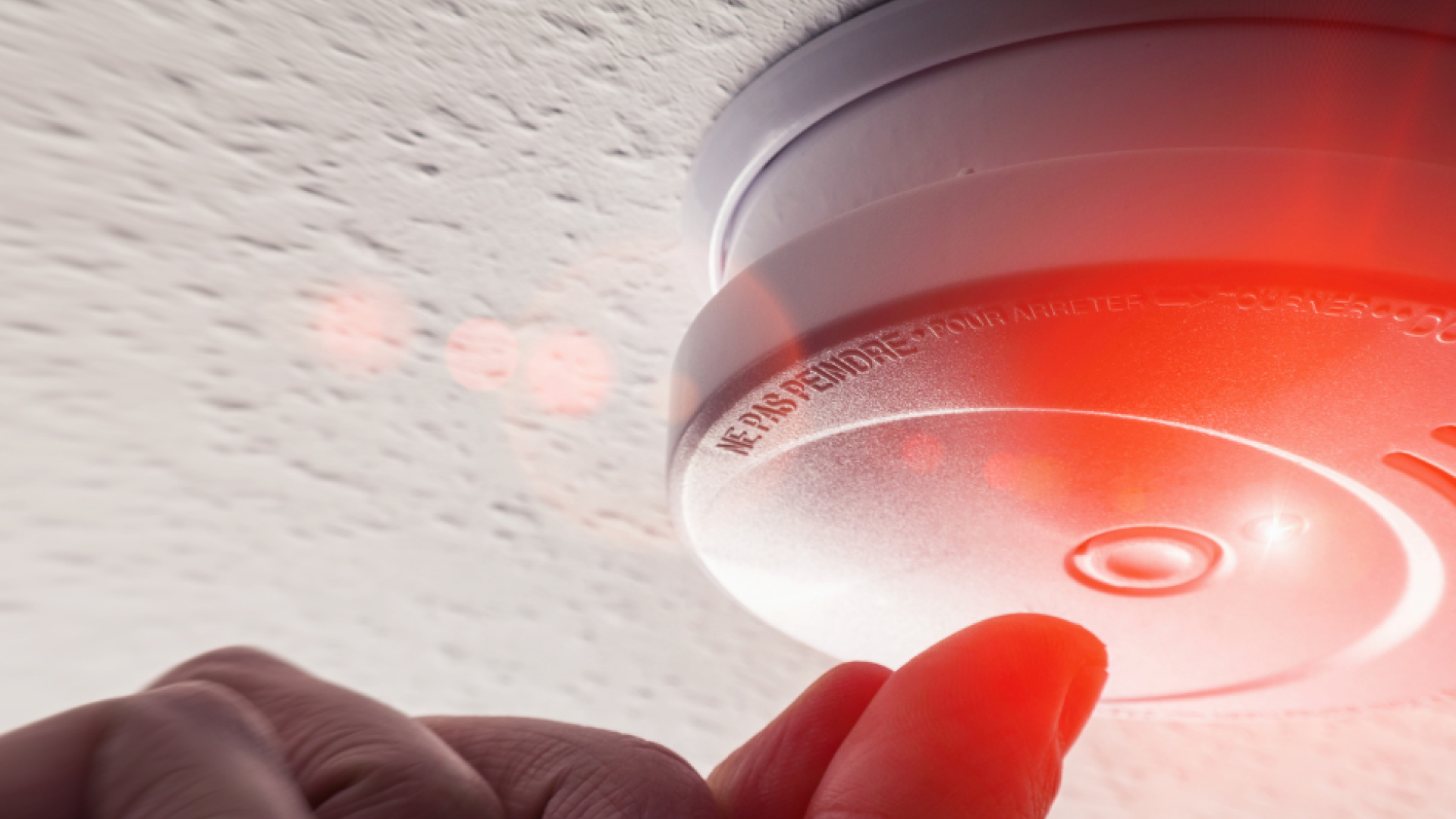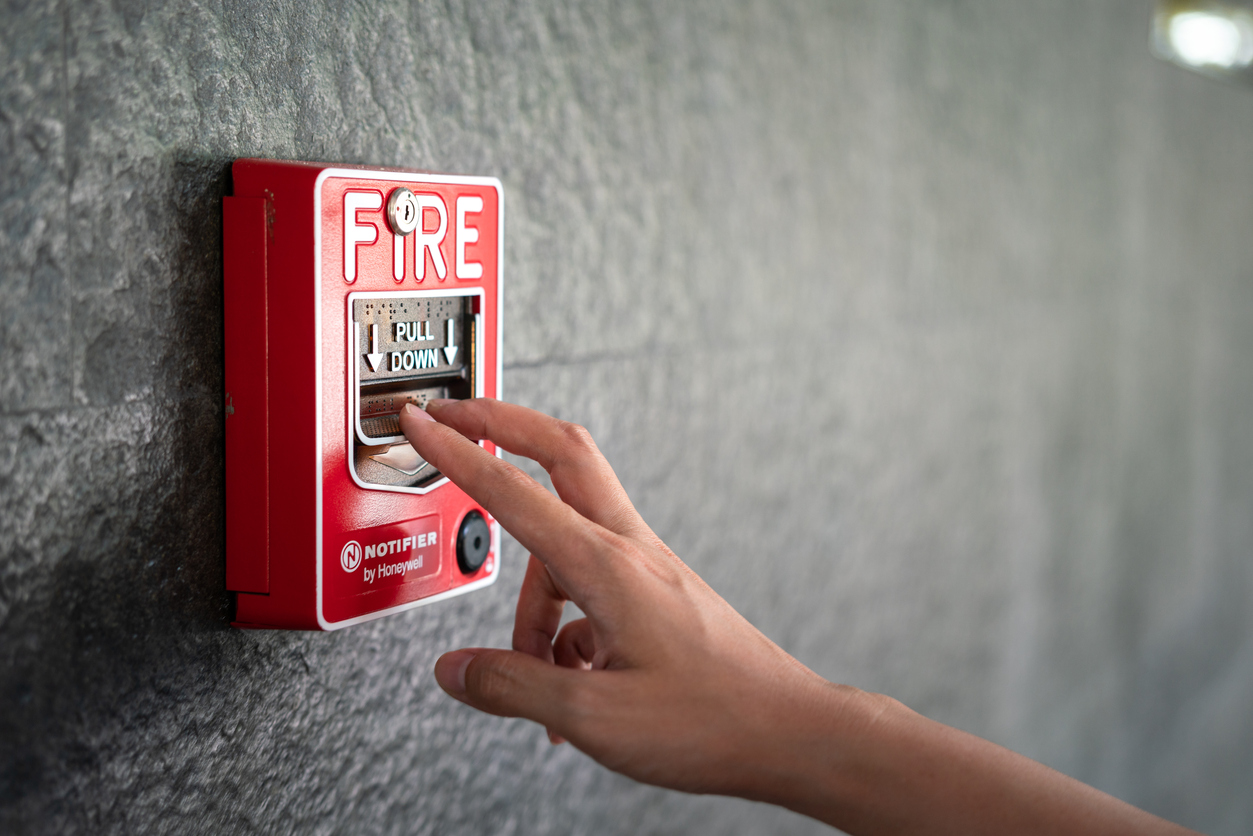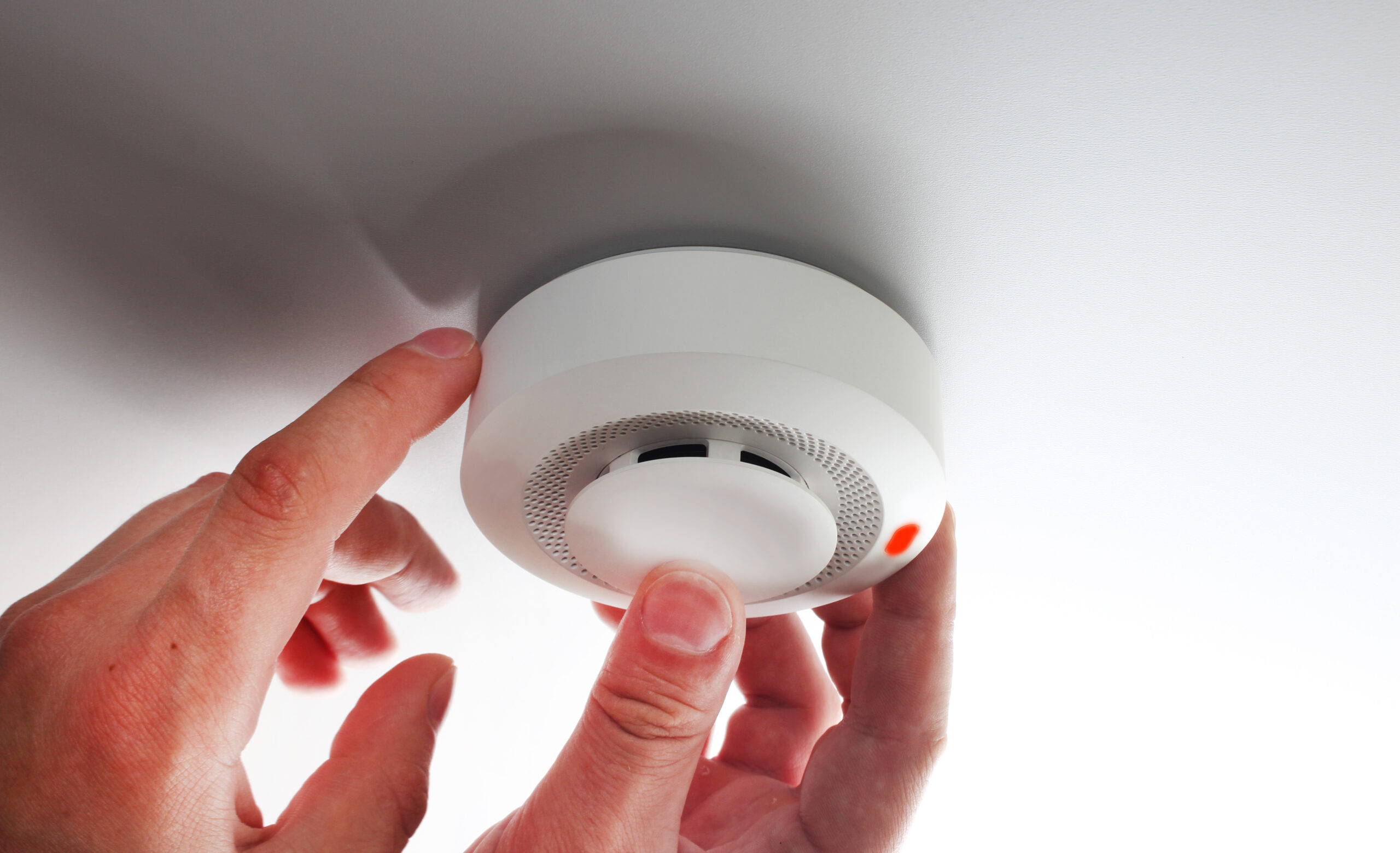
Why Do Fire Alarms Go Off Randomly?
Your fire alarm may go off unexpectedly due to a variety of reasons, ranging from environmental factors to technical malfunctions. Here are the most common reasons your smoke detector might be sounding off:
1. Low Battery
One of the most common reasons fire alarms go off unexpectedly is a low battery. When the battery is running low, many fire alarms emit a loud chirping noise, often in the middle of the night. This is because the voltage in the battery drops as the temperature cools down at night, triggering the alarm’s low-battery signal. If your alarm is beeping intermittently, try replacing the batteries to see if that resolves the issue.
2. Dust or Debris in the Alarm
Fire alarms are sensitive devices, and dust or debris inside the unit can cause it to go off randomly. Dust particles can interfere with the sensor’s ability to detect smoke, leading to false alarms. To prevent this, regularly clean your smoke detectors by gently vacuuming around the device or wiping it with a dry cloth.
3. High Humidity or Steam
If your fire alarm is located near a bathroom, kitchen, or laundry room, high humidity or steam can trigger it. When steam or moisture enters the detector, it can be mistaken for smoke particles, causing the alarm to go off. This is particularly common when the alarm is installed in areas where there is frequent cooking or hot showers. Ensure your fire alarm is not too close to these moisture-rich areas, or consider installing a heat detector instead.
4. Electrical Issues or Power Surges
For hardwired fire alarms, power surges or electrical issues can cause them to go off unexpectedly. A sudden power surge can interfere with the alarm’s circuitry, leading to a false alarm. If your home has experienced a power outage or fluctuation recently, this could be the culprit. In this case, resetting the alarm by turning off the circuit breaker and turning it back on may fix the problem.
5. Expired Smoke Detector
Did you know that fire alarms have an expiration date? Most fire alarms are only effective for about 8-10 years. After that, the sensors can become faulty, leading to random alarms. If your fire alarm is more than 10 years old, it’s time to replace it to ensure your home stays protected. Check the back of your alarm for a manufacture date to see if it’s time for a replacement.
Why Do Fire Alarms Go Off More Frequently at Night?

While fire alarms can go off randomly at any time of day, it’s no coincidence that many people report this happening during the night. There are a few reasons why:
1. Temperature Changes
At night, the temperature in your home naturally drops, which can affect the voltage in your smoke alarm’s battery. As the temperature decreases, the voltage drops, causing the alarm to chirp or sound off if the battery is low. This is why smoke detectors often signal a low battery in the middle of the night.
2. Less Air Movement
During the day, air is constantly moving throughout your home, but at night, this air movement slows down. Less airflow means dust or steam that might trigger the alarm can settle around the detector more easily, leading to false alarms. Regularly cleaning your fire alarm can help prevent this issue.
How to Stop Your Fire Alarm from Going Off Randomly
If your fire alarm keeps going off unexpectedly, it’s important to address the issue to ensure your home remains safe and protected. Here’s how to stop false alarms from happening again:
| Step | What to Do |
|---|---|
| 1. Replace the Batteries | Start by replacing the batteries in your smoke alarm. Even if the battery isn’t completely dead, low power can trigger the alarm, especially at night. Be sure to use fresh, high-quality batteries. |
| 2. Clean the Alarm | Remove dust, dirt, and cobwebs from your fire alarm using a vacuum cleaner or dry cloth. This will help prevent false alarms caused by debris interfering with the sensors. |
| 3. Relocate the Alarm | If your fire alarm is too close to a bathroom, kitchen, or laundry room, consider relocating it to an area with less humidity and steam. You can also install a heat detector in moisture-prone areas to avoid false alarms. |
| 4. Reset the Alarm | If your alarm is hardwired, resetting it by turning off the circuit breaker and turning it back on can sometimes resolve issues related to power surges or electrical problems. |
| 5. Replace Old or Faulty Alarms | Check the age of your fire alarm. If it’s more than 8-10 years old, it may be time for a replacement. Installing a new, modern smoke detector ensures better protection and fewer false alarms. |
How to Choose the Right Fire Alarm for Your Home

If your current fire alarm is giving you trouble, it may be time to invest in a new one. Here are some factors to consider when choosing the right fire alarm for your home:
1. Ionization vs. Photoelectric Smoke Detectors
There are two main types of smoke detectors: ionization and photoelectric. Ionization detectors are better at detecting fast-flaming fires, while photoelectric detectors are more sensitive to smoldering fires. Many modern smoke detectors combine both technologies for maximum protection.
2. Hardwired vs. Battery-Powered Alarms
Hardwired alarms are connected to your home’s electrical system and often have battery backups, while battery-powered alarms are easier to install but require regular battery changes. Both types are effective, but hardwired alarms provide more consistent power and are less likely to fail due to dead batteries.
3. Smart Fire Alarms
If you want extra peace of mind, consider investing in a smart fire alarm. These alarms connect to your smartphone and send alerts if smoke is detected, even when you’re not at home. Some smart alarms also come with features like self-testing, making maintenance easier.
For more tips on choosing the best fire alarm for your home, check out this NFPA guide on smoke alarms.
FAQ
| Question | Answer |
|---|---|
| Why did my fire alarm go off randomly in the middle of the night? | Common reasons include low battery voltage due to cooler temperatures, dust or debris in the detector, high humidity, or an expired smoke alarm. Replacing the battery or cleaning the alarm can usually resolve the issue. |
| How often should I change the batteries in my fire alarm? | It’s recommended to change your smoke alarm batteries at least once a year, or whenever the low-battery chirp starts. |
| Can dust trigger my fire alarm? | Yes, dust or debris inside the smoke detector can interfere with the sensors and cause false alarms. Regularly clean your fire alarms to prevent this issue. |
| How can I stop my fire alarm from going off due to steam or humidity? | Consider moving the alarm away from moisture-prone areas or replacing it with a heat detector designed to handle steam or humidity without triggering false alarms. |
| When should I replace my smoke detector? | Most fire alarms are effective for about 8-10 years. Check the back of your alarm for the manufacture date, and replace it if it’s expired. |
If you need assistance with air quality, fire damage, or mold issues, contact Citywide Mold Mitigation for professional services and expert advice to keep your home safe.

